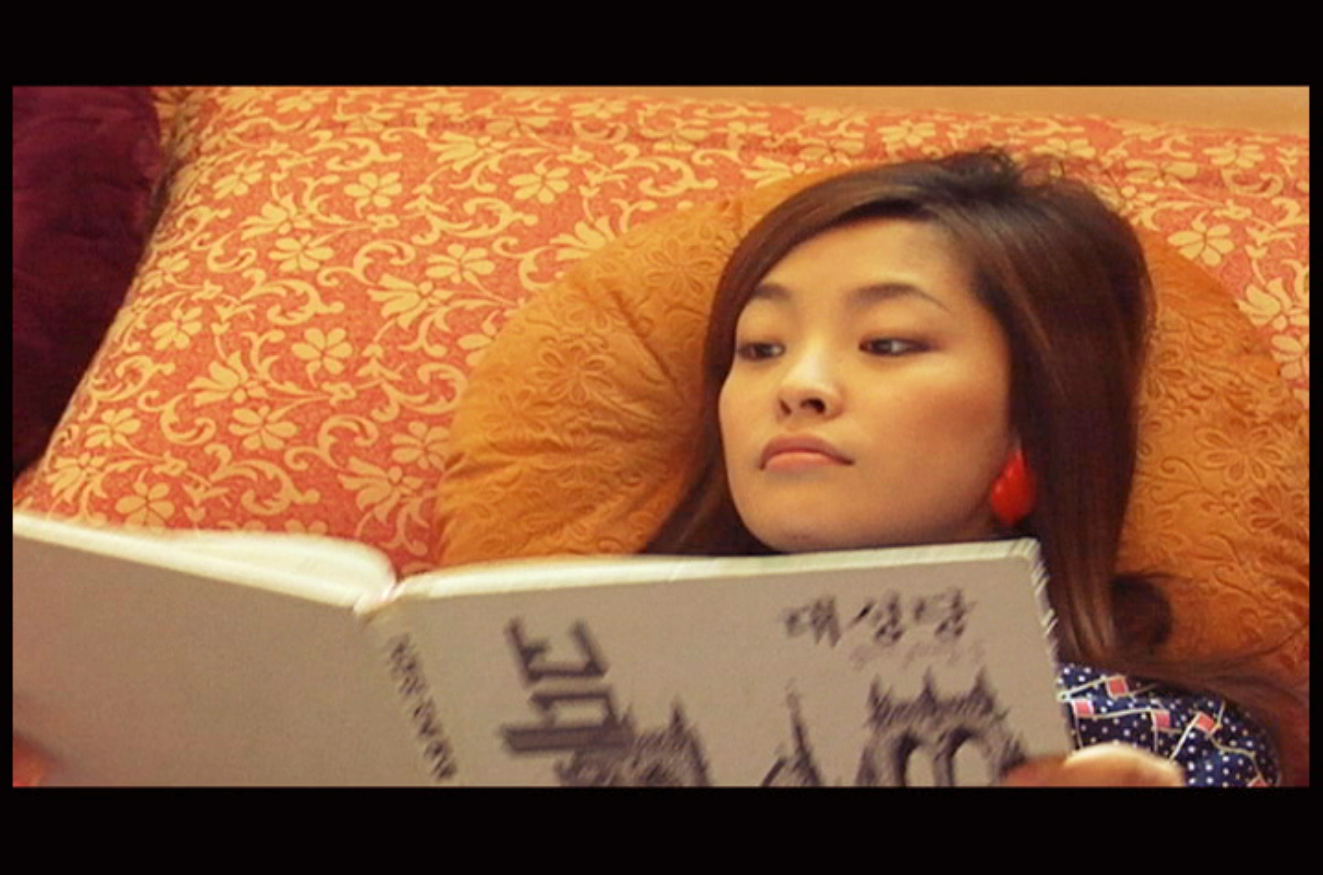Filmmaker Kirsten Tan and actress Oon Shu An in conversation
We celebrated the virtual launch of the Objectifs Film Library on 30 Apr with our first Objectifs Film Club session, held online via Zoom. Thank you to the more than 70 participants who joined us from Singapore and overseas for filmmaker Kirsten Tan and actress Oon Shu An’s discussion on Kirsten’s little known early short film Come (rent it here).

Read on for the first instalment of our recap of their conversation, which focuses on Kirsten’s experiences in South Korea, the making of Come (2007), a sex comedy set in South Korea, and her journey and philosophy as a filmmaker. Part II of the recap will cover their discussion of Come in relation to Shu An’s role in sex comedy Rubbers (2014) and their responses to questions from audience members.
The conversation has been slightly paraphrased for brevity. Please note that the films referenced as well as the discussion touch on mature themes.
Shu An: You were 24 when you made Come and you were in South Korea all by yourself, doing a residency. Who were you as a person, and who were you as an artist then?
Kirsten: I knew I wanted to be a filmmaker since I was 16. But the cultural climate at the time in Singapore was pretty barren. It was hard for me to see a road ahead. I went to NUS first, where I studied literature, and then did an Advanced Diploma in Film Production at Ngee Ann Polytechnic.
I wanted to make films. I just didn’t know how to be a filmmaker. It was never like I’m gonna do this film, it’s gonna be great, it’s gonna get me awards, but more like how do I make a film that’s engaging, that I can be proud of? I was very form and craft focused. I never dared to call myself a filmmaker.
In South Korea, I was removed from my comfort zone in Singapore, and for the first time I was introduced everywhere as a filmmaker, and that’s when I came to terms with the fact that I’m a filmmaker.
The very interesting thing about being away is this ability to self-invent or to reinvent because no one knows who the hell you are. It was also a very isolating period — most of Korean society speaks Korean so I felt largely in my own head. Yet, I was immersed in Korean culture, I watched a lot of Korean films; my programme allowed me to go to different film festivals all the time. It was a very exciting time to be in South Korea — it was the start of the Korean New Wave. People like Kim Ki-duk, Hong Sang-soo were on the rise, Park Chan-wook was making exciting films like Oldboy. Korean New Wave cinema was really taking off.
Because of a lack of any external distractions, I felt like my relationship with filmmaking was very clear. It was my only anchor at that point. I became more and more certain of who I was. The isolation really made me internal and sensitive. I just felt so alive at that point. Korea, and after that Thailand where I went next, were probably the purest periods of my life, which I might never discover again.
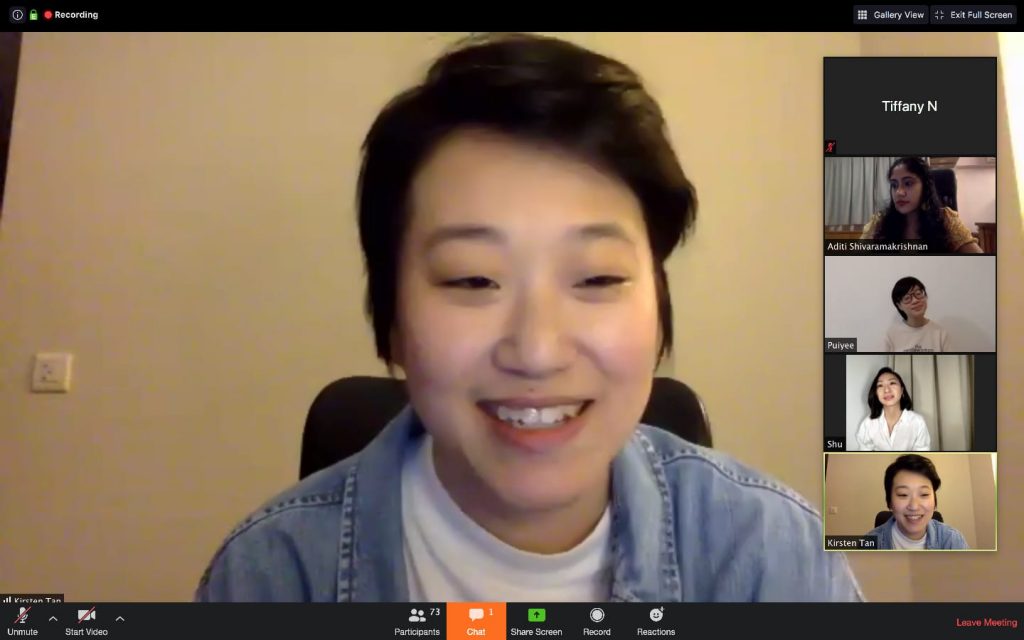
Filmmaker Kirsten Tan
Shu An: That’s like a really happy but also potentially sad thing. Why do you think you might never discover that again? Do you think it’s a physical place-related thing or spiritually, emotionally where you were at?
Kirsten: I think it’s a mix of age and experience. At that point I was becoming an adult. I was still relatively pure – everything felt new and exciting for me, there was an appetite for experience. Everything was dangerous, exciting, new. But I was also sad because I was alone. I’d see something or hear something beautiful and special but I’d have no one to share it with. So that became a very fertile ground for creativity because if you have no one to communicate it to, you just write it into your films.
Shu An: I feel like it’s a bit like the discovery of sex, right?! It’s a very lonely thing when you first… I’m just thinking of that scene in Come when the boy, I don’t know if it’s the first time he’s masturbating or the first time he’s discovering porn, it just feels like there’s no one he can share it with. And after that his dad comes in…as you were speaking, that was all I could think of!
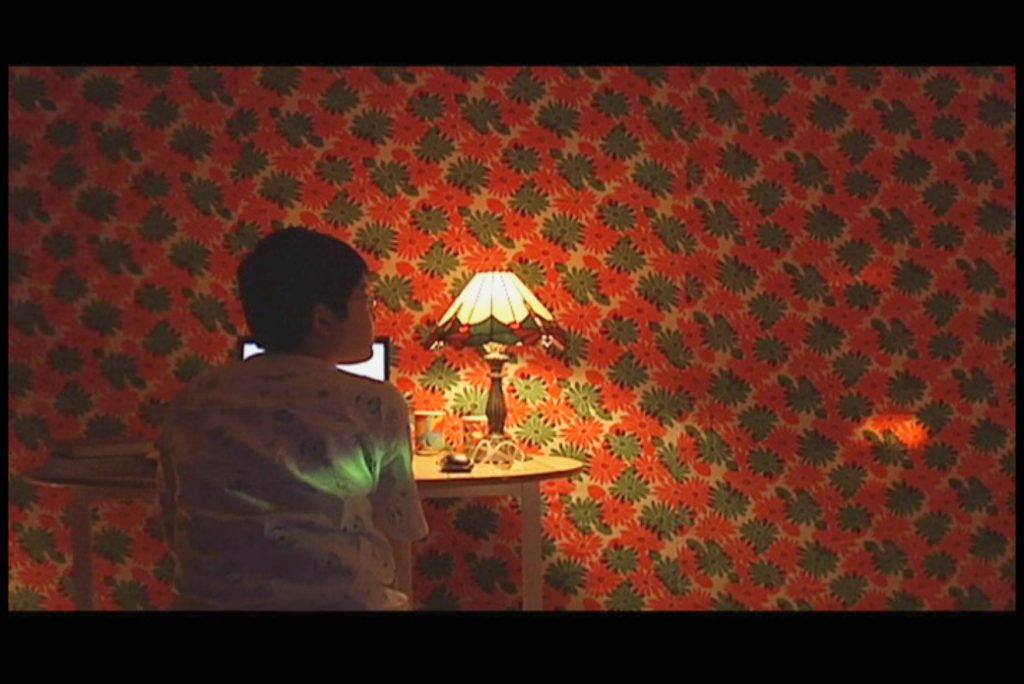
From “Come” by Kirsten Tan
Kirsten: Come was inspired by conversations I had with my Korean friends. Korea is a very fascinating place for me.
The first time I went there, I discovered that everywhere I went in Korea was a church or a cathedral. I didn’t realise the country was pretty religious… and people were telling me there are no gay people in Korea. But as soon as one of my short films got into this women’s film festival in Seoul, that was it, all these queer women were coming up to me to chat about films.
I think that’s the beauty of being a minority. Once I’m a minority and you’re a minority, it’s easy to become instant friends. They really brought me into their lives. I started making friends with those Korean girls and interestingly many of them were activists, they were pretty radical in their stand but I think that was also a reaction against the extreme conservativeness of Korean society. On the one hand you have this very polite, conservative society and then the counter force against that is quite strong as a result.
Another observation I had was that the Korean friends I made, when you meet them in everyday life they’re so polite and restrained. But once we started drinking soju, everything started pouring out. My producer himself would tell me in Korean, Kirsten, we’re making a short film, I would die for you! Very drama, very intense. I noticed this juxtaposition of extreme bursts of dramatic exuberance and then the force of repression that exists along with it. I felt like Korean society was really like a cup that’s overflowing that’s trying to put a lid on itself.
All these feelings are just my personal observations but that led to my creation of Come, where I just wanted to have these two forces juxtaposed. How does a religious mum, for example, handle a child coming of age who is learning about sex and so on? Being in my early 20s, I wanted to make fun of the status quo, to just be irreverent.
Shu An: I really love that about a lot of your films. There’s a sense of irreverence and you manage to capture sadness and heavy things in such a light but substantial way. You transform sadness into sunshine, or really uncomfortable feelings into something that feels easier to kind of deal with, or look at.
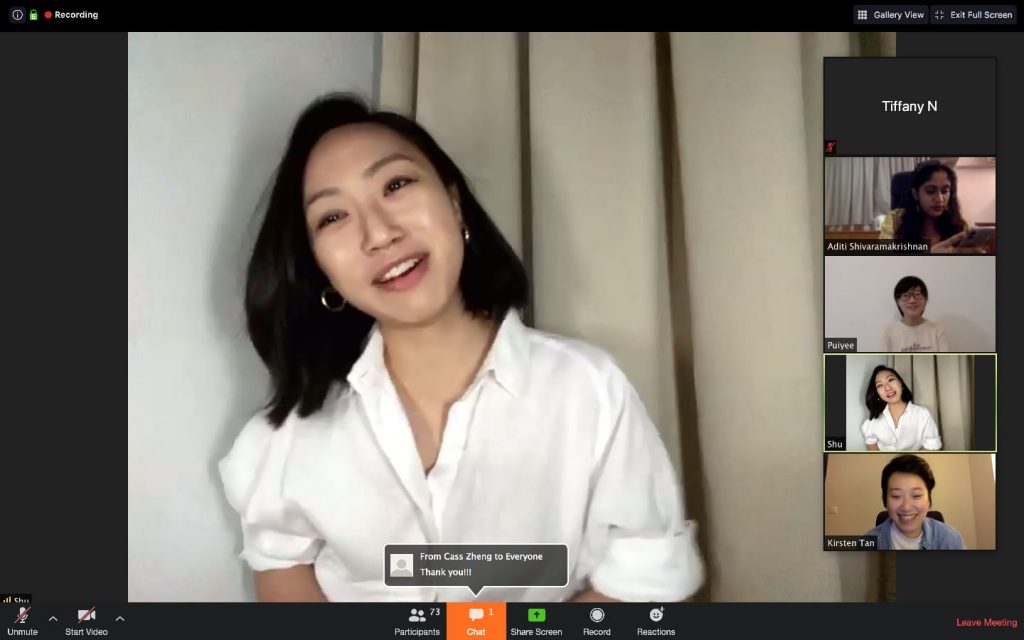
Actress Oon Shu An
Kirsten: That’s very nice of you to say. Maybe that’s the way I handle life. I’ve gotten into many problems before, like I’ll have a big breakup fight and then I’ll suddenly start to laugh. Sometimes when I see something I feel really really far away and—maybe it’s also a byproduct of being a filmmaker—I feel like as shit is happening to me in real life, a part of my head is always processing what’s happening, like, Kirsten, remember this, once you leave the scene, you have to write it down.
Shu An: I think we all wanna know how your brain works.
Kirsten: I’m still trying to understand it too. Maybe because I feel a lot, sometimes it’s easier to take a step back and not get too involved, if not it gets too overwhelming. I remember when my dog passed away, he was just lying there and his body was getting rolled into the incinerator, my father and I were both filming it on our phones. It’s so weird but I think the filming helped to create a removed layer from being in the actual situation, because that would’ve been too much. That layer allows you to process it better.
Maybe in a way that’s also quite Asian society of me, where you can’t really be in the present moment to engage that emotion and the effect is that sometimes, that makes it even sadder.
In everything I do, I like a juxtaposition of emotions be it happiness and sadness, humour and tragedy. That’s life for me. Life is not pure tragedy, it’s not pure humour, it’s really a mix of everything and in the midst of it all, we just try our best to cope and that’s that.
Shu An: Because the emotions don’t go away. Just because you don’t fully feel them at that point in time doesn’t mean they just disappear, right? Do you feel that you process them through your films?
Kirsten: I’ve never believed in art as therapy. But no matter what it has to happen, right? Everything I create has to come from somewhere, whether it’s an experience I went through, a piece of dialogue I heard, news I read… I definitely don’t think I need to heal now and therefore I’m gonna write this so I’ll feel better. It’s never like that. But sometimes when you start to write, things come out and then on hindsight when you look at it, you realise that the process of healing has already happened.
Shu An: Being an outsider in Korea, a guest for one year, and making such big statements about repression, religion, and sexuality, did you feel any reactions from the people you were working with?
Kirsten: Our programme, the Asian Young Filmmakers Forum, was set up by the Koreans themselves and they wanted us ‘young’ Asian filmmakers to each create a film that comments on Korean society.
In a way any film that is good is a commentary on something. You can’t avoid the commenting, whether it’s about relationships, society, characters, behaviour, power, etc.
Kirsten: And because that was the framework we were placed into, I just made whatever I wanted and channelled those observations from the stories my Korean friends were telling me.
Shu An: How did you find the actors? What was the casting call? Did you describe the film to them?
Kirsten: Our film had almost zero budget. The crew was all hired by my Korean producers. I didn’t really have a say, I would just vaguely okay each one and then they’d show up on set. It’s not like now, where I can decide who I’m going to hire, work with and so on.
Most of the cast is related to my producer. The boy is his nephew. The sister’s two friends are my assistant producers. The short pastor at the end is my producer himself. All the extras were his relatives. I really love him because he promised to go all out and he did! The three professional actors were the mum, the dad and the sister. In terms of how we communicated with them, I had the script translated by my Korean team and we sent it off to them. I feel Korean actors are so talented. I never had rehearsals with these guys. They showed up on set, we had a couple of conversations through a translator and that was it.
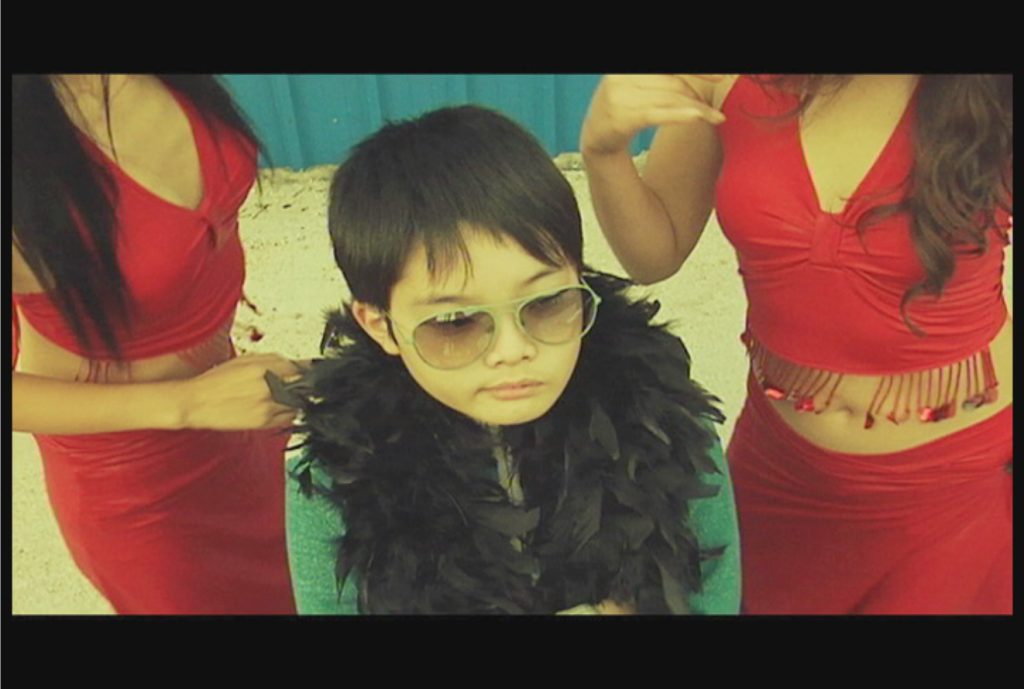
A scene from “Come” by Kirsten Tan
Shu An: Did you have a favourite scene to shoot in Come?
Kirsten: That’s hard for me to answer because I look at every scene similarly. The whole process was pretty fun. We filmed in an empty house that the production designer did a great job in putting together. She was an art student, not even a professional yet. I met her through friends at a party. Given how cash- and resource-strapped the whole processed was, I feel like the film came through for what it is.
Shu An: Is there a reason why you “buried” Come for 13 years? How does it feel watching it again after so long?
Kirsten: Before Come I made two short films, 10 Minutes Later and Fonzi. There were narrative elements but they were both definitely not dramatic. They had more of a philosophical or experimental slant. Like the Iranians, the Koreans are masters of narrative filmmaking, they’re so good at telling stories. And so as I was meeting industry experts then, one of them asked, Don’t you want to make films people feel something for?, and he called my two earlier films an “exercise in intellectual masturbation” which I don’t think is terrible because that could also be enjoyable! But that made me curious to test out the breadth of what I could do as a filmmaker, and I tried to make an obviously more classical and comedic film.
But afterwards, when I saw it I was pretty traumatised. it was like identity discombobulation. I’ve always been a bit harsh on myself when I self-critique and I thought, I don’t even know what I am. There was no impulse for me to send it to film festivals. It was not like I hated it, but I just felt there were elements I wasn’t very satisfied with. Now when I see it I think it’s okay but at that point I would rather forget it and I made my next film, Sink, which was again more experimental. I was swinging wildly between genres and styles…actually, up to this point I’m not sure if I’ve settled into myself yet. The fun for me is always to experiment and try out things, to keep the process alive.
Stay tuned for Part II of the recap, which will cover their discussion of Come in relation to Oon’s role in sex comedy Rubbers (2014) and their responses to questions from audience members.
Come, along with with other short films by Southeast Asian filmmakers, is available to rent on the Objectifs Film Library. More titles will be able to view at Objectifs’ premises (after they reopen, depending on the Covid-19 situation).
Also look out for details on the next Objectifs Film Club programme later this month, which will feature filmmaker Tan Wei Keong and writer Alfian Sa’at in conversation!

